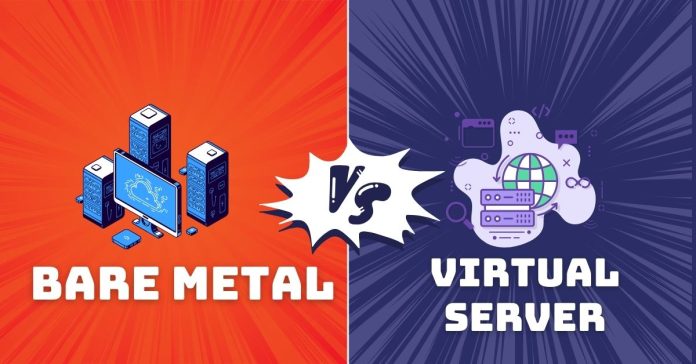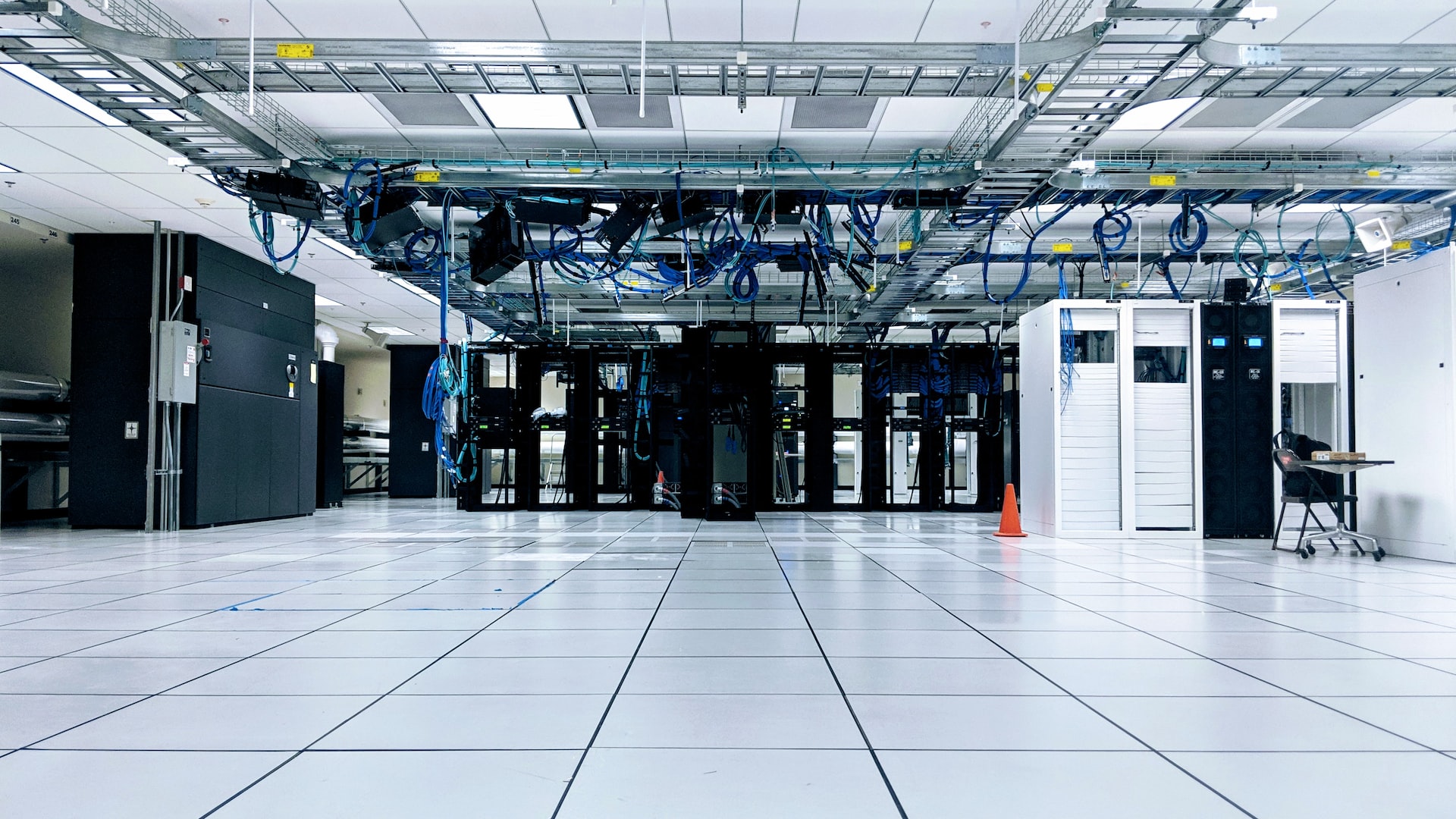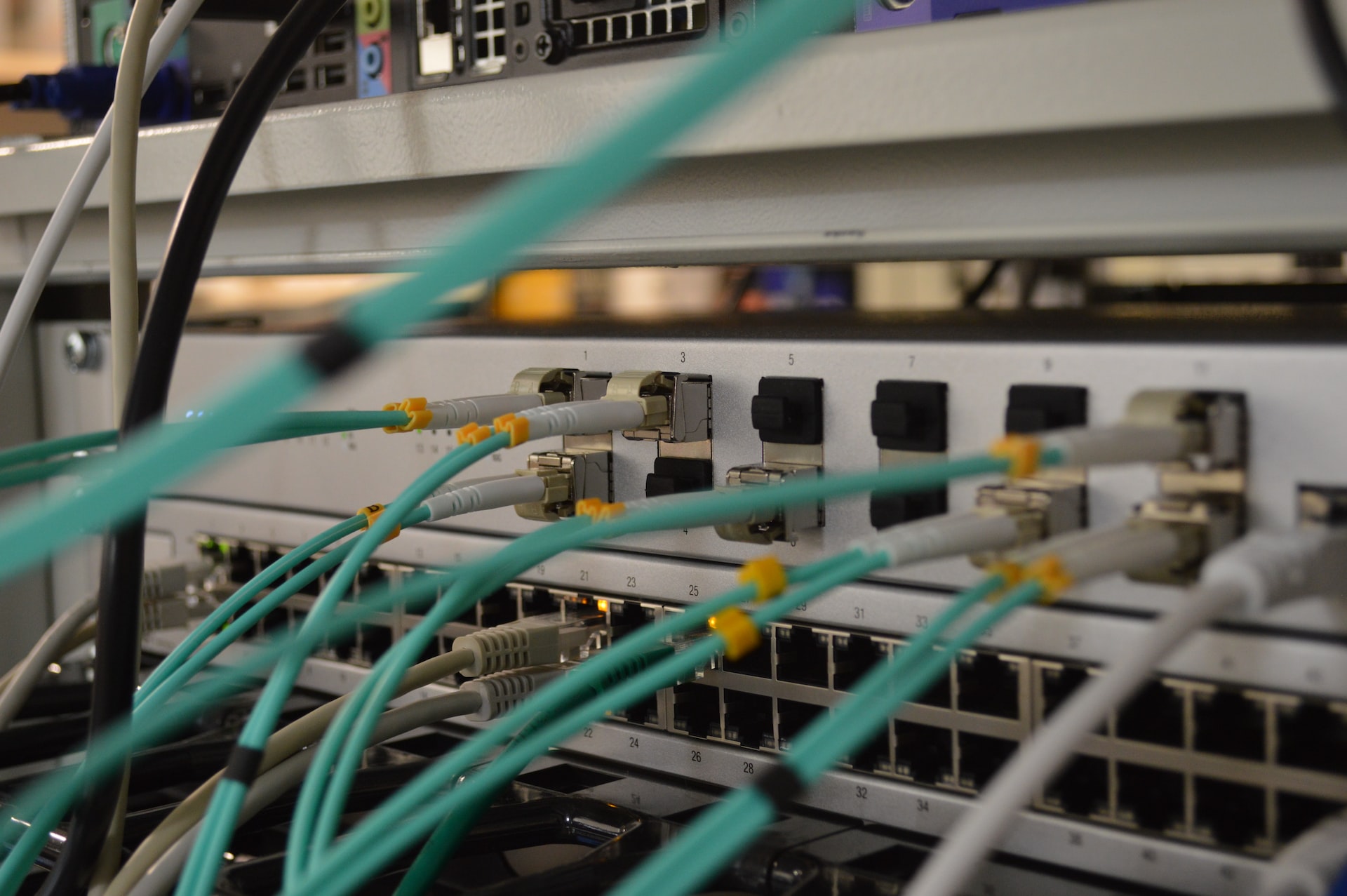Here, we will be comparing bare metal vs virtual server hosting.
When selecting server hosting, you have a wide range of solutions. Bare metal servers and virtual server hosting are two of the most popular types, but since each of these options has distinct benefits and drawbacks, figuring out which one is best for your organization can be a challenge.
While a virtual server has unmatched scalability and cost-effectiveness, bare metal servers provide superior and more reliable performance.
The IT success of your organization depends on knowing when to use which server hosting type because making the wrong choice can lead to delays and security problems.
In this post, we’re comparing the key distinctions between bare metal servers and virtual servers to help you decide which option will offer the right infrastructure for your requirements.
Table of Contents
What is a Bare Metal Server?
A bare metal server is actually a physical computer that’s dedicated to only one tenant or customer (a single-tenant physical server). With this approach, you and you alone are working on the server rather than in a group.
The speed, configuration, and security of the server can be changed at any moment with this single-tenant server hosting option without utilizing shared resources with other customers. The single tenant has exclusive access to all server resources.
The hard drive or bare metal of the computer’s hardware is where the operating system is installed on traditional bare metal servers. Alternatively, the hosting company can implement a virtual layer on the host server using software known as hypervisor virtualization.
Bare metal hypervisors allow for the creation of numerous separate virtual server environments and a variety of operating system instances, allowing for the sharing of virtual servers across diverse tenants. They offer similar levels of performance and security while at the same time providing cloud computing advantages.
READ ALSO: Most Secure Web Hosting Services
What Is a Virtual Server?
A virtual server enables multiple operating systems to share hardware and software resources. A virtual server performs the exact same tasks as a physical server. You can host several virtual servers on one bare metal server. This is because servers use virtualization software and virtual infrastructure in order to create virtual environments.
The benefits of virtual servers include cost effectiveness, resource isolation, as well as space and energy savings.
On the other hand, resource hogging, i.e. the inability to provide a proper allocation of resources (which happens when a large number of virtual servers crowd a real server and reduce performance) is the biggest challenge when using this type of server.
 Best Web Hosting Services
Best Web Hosting Services
READ ALSO: Cyber Security Or Physical Security – Which Should You Prioritize?
Comparing Virtual Servers and Bare Metal Servers
The level of dedication is the key contrast between virtual servers and bare metal servers. As mentioned before, a bare metal server is a physical server that is dedicated to a single tenant and doesn’t share resources with other customers.
A virtual server, on the other hand, shares software and hardware resources with other virtual servers and is located in the cloud or a remote data center.
It’s safe to say that bare metal servers have a higher processing capacity than virtual servers. In addition, the main security differentiator between virtual servers and bare metal servers is their tenancy.
Unlike virtual servers, which are multi-tenant, bare metal servers are single-tenant. Simply because of this feature, bare metal servers are regarded as being more private and secure.
When it comes to cost, the first thing to keep in mind is that pricing for bare metal and virtual servers is different. In contrast to virtual servers, which have a fixed payment period and only bill consumers for the resources used, bare metal servers have a recurring monthly fee that customers are invoiced for.
Moreover, bare metal servers are frequently more expensive than virtual servers, but this can change over time depending on whether they are used for enterprise-level workloads.
Bare Metal vs Virtual Server Hosting: Performance
- Bare metal servers offer superior performance than virtual servers, as they have dedicated resources and are not subject to the overhead of virtualization.
- Virtual servers can still offer good performance, but they may be limited by the resources available to them on the underlying physical server.
- For businesses that need the highest possible performance, bare metal servers are the best choice.
READ ALSO: VPN Explained in Fewer than 140 Characters
Bare Metal vs Virtual Server Hosting: Security
- Bare metal servers are generally considered to be more secure than virtual servers, as they are dedicated to a single tenant and do not share resources with other tenants.
- Virtual servers can still be secure, but they are more vulnerable to attack if a tenant’s security is compromised.
- For businesses that need the highest level of security, bare metal servers are the best choice.
Bare Metal vs Virtual Server Hosting: Scalability
- Bare metal servers can be more difficult to scale than virtual servers.
- To increase capacity, you need to add additional physical servers.
- Virtual servers, on the other hand, can be scaled up or down on demand, without the need to add additional physical servers.
- For businesses that need to be able to scale their server environment quickly and easily, virtual servers are the better choice.
Which type of server is right for your business?
The best type of server for your business will depend on your specific needs and requirements. If you need the highest level of performance and security, then a bare metal server is the best option.
However, if you are on a budget or need to be able to scale your server environment quickly and easily, then a virtual server may be a better choice.
Here is a table that summarizes the key differences between bare metal and virtual servers:
| Feature | Bare Metal Server | Virtual Server |
|---|---|---|
| Performance | Highest | High, but may be lower than bare metal if too many tenants are sharing the same resources |
| Security | Highest | Good, but may be vulnerable to attack if a tenant’s security is compromised |
| Scalability | Difficult to scale | Easy to scale |
| Cost | Most expensive | Less expensive than bare metal servers |
Final Thoughts
All in all, if you’re running a small business where security is a major priority, sticking with a bare metal server can be a sensible choice.
However, if you decide to use this type of server hosting, be sure that you have a solid data backup system in place and that you have a location that can accommodate the cooling and power requirements for adequate server maintenance.
INTERESTING POSTS
- Tips To Choose A Home Alarm System
- Virtual Shield VPN Review: Is Virtual Shield VPN Safe? [+Best Alternatives]
- VPN Extension For Google Chrome – Benefits And Useful Tricks
- Honest NordVPN Review 2023: Is NordVPN Worth It?
- The Best VPN Services
- Everything You Need To Know About Using A VPN
- How To Get German Virtual Number And Receive SMS Online
About the Author:
Daniel Segun is the Founder and CEO of SecureBlitz Cybersecurity Media, with a background in Computer Science and Digital Marketing. When not writing, he's probably busy designing graphics or developing websites.


















